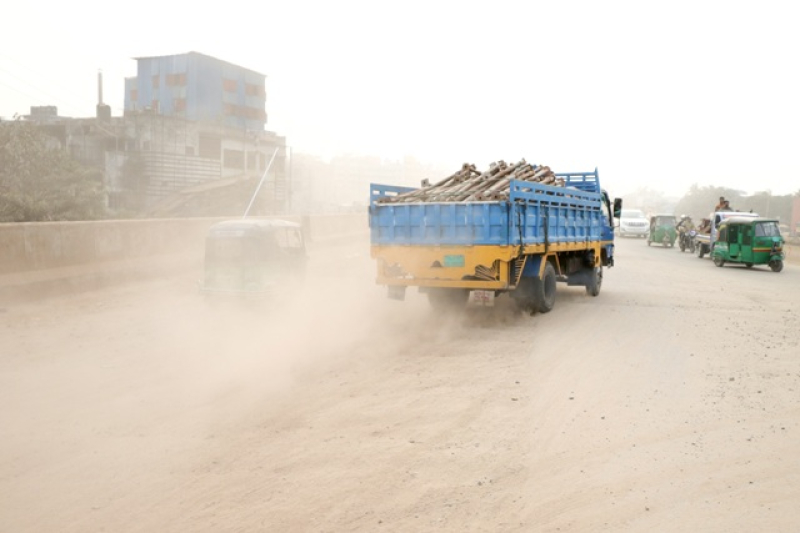- Stock market: DSE fails to sustain early gains, CSE extends rally |
- Illegal arms, disinformation pose major challenges to BD polls: Officials |
- BNP senses ‘dangerous conspiracy’ against democratic transition |
- CEC Vows Credible Election to End Stigma |
- High-level meeting reviews country’s economic progress |
Dhaka’s air quality ‘unhealthy’ this morning

Air pollution in the capital city of Dhaka.
Dhaka, Apr 26 - Dhaka, the overcrowded capital city of Bangladesh, has ranked 10th on the list of cities with the worst air quality with an AQI index of 152 at 9am this morning (April 26, 2024).
Today’s air was classified as 'unhealthy', according to the air quality index though the last day’s air was moderate.
When the AQI value for particle pollution is between 50 and 100, air quality is considered ‘moderate’, usually sensitive individuals should consider limiting prolonged outdoor exertion, between 101 and 150, air quality is considered ‘unhealthy for sensitive groups’, between 150 and 200 is ‘unhealthy’, between 201 and 300 is said to be 'very unhealthy', while a reading of 301+ is considered 'hazardous', posing serious health risks to residents.
Nepal’s Kathmandu, Pakistan’s Lahore and India’s Delhi occupied the first, second and third spots in the list, with AQI scores of 194, 194 and 190, respectively.
The AQI, an index for reporting daily air quality, informs people how clean or polluted the air of a certain city is and what associated health effects might be a concern for them.
The AQI in Bangladesh is based on five pollutants: particulate matter (PM10 and PM2.5), NO2, CO, SO2, and ozone.
Dhaka has long been grappling with air pollution issues. Its air quality usually turns unhealthy in winter and improves during the monsoon.
As per World Health Organization (WHO), air pollution kills an estimated seven million people worldwide every year, mainly due to increased mortality from stroke, heart disease, chronic obstructive pulmonary disease, lung cancer, and acute respiratory infections. - UNB

